A History of Music - Part IV (1788 - IN PROGRESS)
Ongoing tracker of each composition, song, album or other piece of music that I review/listen to for this project. In this part, we continue finishing up the Classical era as the emergence of Beethoven begins the rise of the Romantic era. |
| 1 | 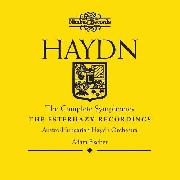 | Joseph Haydn
Symphony No. 90 in C major
1788
Haydn having fun with some of the writing here - a fake ending to the final movement, in this case. A rather bombastic work for "Papa". |
| 2 |  | Joseph Haydn
Symphony No. 91 in E♭ major
1788
Harmless and nice, but on the bland side admittedly. |
| 3 | 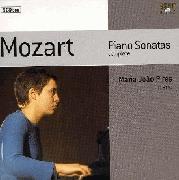 | Wolfgang Amadeus Mozart
Piano Sonata in F-major No. 15, K. 533
1788
Rock-solid piano sonata, with some great hand coordination in that first movement. Not among his absolute best from the period though, admittedly. |
| 4 |  | Wolfgang Amadeus Mozart
Piano Sonata No. 16 in C major, K. 545
1788
The childlike, innocent melody in the first movement is another classic Mozart moment. Again, it's not up to his best work in the genre, but quite pleasant all around. |
| 5 | 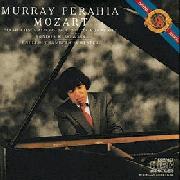 | Wolfgang Amadeus Mozart
Piano Concerto No. 26 in D major, K. 537
24 February 1788
Strong, but incomplete concerto - the left-hand part famously has bits that the composer never added or wrote in. |
| 6 | 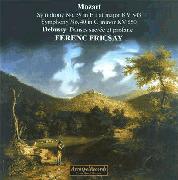 | Wolfgang Amadeus Mozart
Symphony No. 39 in E♭ major, K. 543
26 June 1788
The first movement is Mozart exploring tonal waters he had never trodden in the past, and it's a remarkable achievement. If nothing else in here quite lives up to that stunner, it certainly doesn't feel disappointing - the minuet is a folk song melody that translates well, and the finale is a shredder (if you will), with lots of fast-paced work among the strings. |
| 7 | 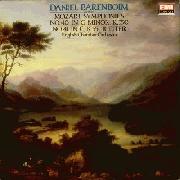 | Wolfgang Amadeus Mozart
Symphony No. 40 in G minor, K. 550
25 July 1788
A contender for Mozart's greatest orchestral triumph. The opening melody needs no introduction but deserves every ounce of praise it receives, the second movement is tranquil and one of his finest slow movements, the minuet is maybe his angriest "dance" he ever penned, and the finale continues the aggression into a stirring conclusion. Minor-key Mozart is where some of his most personal-sounding music arises, and if one doubts this, point them to the tour de force that is #40. We're a long way from the pablum that the boy wonder was tossing aside in pre-pubescence. |
| 8 | 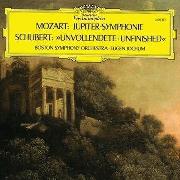 | Wolfgang Amadeus Mozart
"Jupiter" Symphony No. 41 in C major, K. 551
10 August 1788
Incredible symphony, with a sort of grave finality to it (as hindsight-laden an opinion as that may be). The slow movement is Mozart's very best slow movement across any piece he ever wrote, and the finale is the best single movement of any of his symphonies, bar none. Everything else is energetic (and bombastic, in the case of the finale), but a fragment of the bounce and positivity from previous symphonies is gone. At the least, it's the work of a man maturing - with context, it's the work of a man whose light was just 3 years away from shutting off for good and had the foresight to create a magnum opus such as this before it did. |
| 9 | 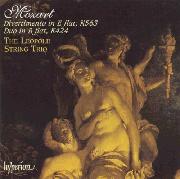 | Wolfgang Amadeus Mozart
Divertimento in E flat major, K. 563
27 September 1788
This was a time when string trios were hardly ever composed, so Mozart composing a work that entered the canon was an unlikely accomplishment (perhaps one of his more unlikely ones). Accomplish it he did, though; this piece is quite gorgeous, full-sounding despite the small ensemble size. |
| 10 | 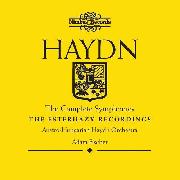 | Joseph Haydn
Symphony No. 92 in G major,
1789
Gets more interesting as it goes along, developing the piece's principal theme across multiple different settings and arrangements. The last movement is quite frenetic for Haydn, a real shock to the system given his usual output. |
| 11 | 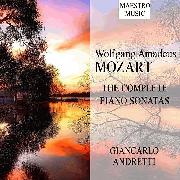 | Wolfgang Amadeus Mozart
Piano Sonata No.17 B-flat major, K.570
1789
Middle-class Mozart sonata, one of the most rudimentary-sounding melodies he was writing around this time. |
| 12 | 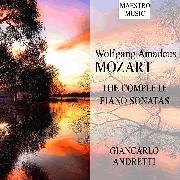 | Wolfgang Amadeus Mozart
Piano Sonata No. 18 in D, K576
1789
Mozart's last sonata is a pleasant close to this genre of his output, brassy at times in its sound (hence why it is sometimes called the "Trumpet Sonata"). |
| 13 | 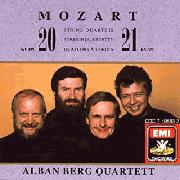 | Wolfgang Amadeus Mozart
String Quartet No.21 in D major, K.575
June 1789
Another Haydn-inspired quartet, but more tranquil overall than the previous "Haydn quartets". The second and fourth movements rate as highlights, with some stunning counterpoint going on in the last movement especially. |
| 14 |  | Wolfgang Amadeus Mozart
Quintet in A major for Clarinet and Strings, K. 581
29 September 1789
Clarinet and strings go together like bread and butter, and Mozart interweaves the two classes together gorgeously. Special praise must be given to the clarinetist countermelodies during string features - hearing it as an accompaniment instrument rather than the feature (like a concerto would do) is a great contrast to the moments where it's featured. |
| 15 | 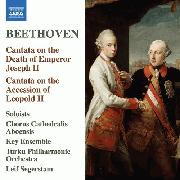 | Ludwig van Beethoven
Cantata on the Death of Emperor Joseph II, WoO 87
1790
A never-performed piece of Beethoven's that didn't see the light of day for about 100 years after its composition. Predictably funereal and dirge-like, a smaller-scale requiem with scattered arias thrown in as well. |
| 16 | 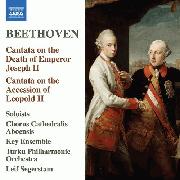 | Ludwig van Beethoven
WoO 88: Cantata - Accession of Emperor Leopold II
1790
Paired with the Joseph II death cantata, this one doesn't sound celebratory so much as...funereal, like its predecessor. An odd musical choice for sure. |
| 17 |  | Joseph Haydn
Piano Sonata in E-flat major, Hob. XVI/49
1790
Not a grand slam, but at minimum a ground rule double for Haydn - easily his best piano work, standing above some of the later-period Mozart sonatas even. Lots of tonal shifts in this piece that make it feel like more than a simple exercise set. |
| 18 |  | Wolfgang Amadeus Mozart
String Quartet No.22 B-flat major, K.589
1790
Written for the King of Prussia, a cellist himself, it should be no surprise that the cello has a major role in this late-period Mozart quartet. |
| 19 | 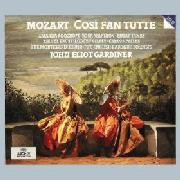 | Wolfgang Amadeus Mozart
Cosi fan tutte, K.588
26 January 1790
Certainly great, but it does get rather forgotten about when compared to his other operas of the day, with a less compelling plot and a more general set of music. But not being up to the level of some of the greatest operas ever written is hardly something to be ashamed of, either. |
| 20 | 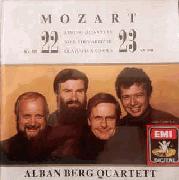 | Wolfgang Amadeus Mozart
String Quartet No.23 in F major, K.590
June 1790
The last, and probably the least-exciting of the Prussian quartets. Still a pleasant listen though, with some of Haydn's trademark stops and starts thrown in as a little nod to the elder. |
| 21 | 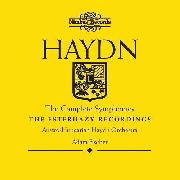 | Joseph Haydn
Symphony No. 95 in C minor
1791
The only minor-key work of the 12 London symphonies, although not a standout among the bunch in any other way. |
| 22 | 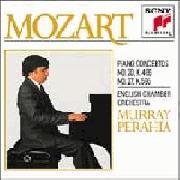 | Wolfgang Amadeus Mozart
Piano Concerto No. 27 in B♭ Major, K. 595
5 January 1791
Mozart's last piano concerto is a beautiful thing, lots of lovely flourishes as well as thematic integration - different themes being revised in the various movements, something Mozart uses in his bigger orchestral works and incorporates in this piece as well. |
| 23 | 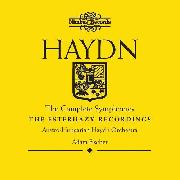 | Joseph Haydn
Symphony No. 96 in D major, "The Miracle"
11 March 1791
Unusually, the best thing here may actually be the third movement, a soaring melody of Haydn's that could easily get confused with Mozart if you're not paying attention. |
| 24 | 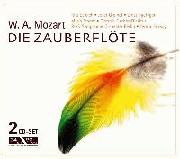 | Wolfgang Amadeus Mozart
Die Zauberflote, 'The Magic Flute', K. 620
30 September 1791
Not surprising with hindsight, but the speed with which this became the most popular opera in history is still remarkable. And how could someone deny it? The whole opera is a proverbial acid-trip, but connected enough to pastoral and human themes alike that the audience is never disconnected from the material. With an engaging collection of music - including "Der Holle Rache kocht in meinem Herzen" (the "Queen of the Night" aria), a soprano feature for the ages - the opera is just stellar, even now a contender for the finest the genre ever produced. |
| 25 | 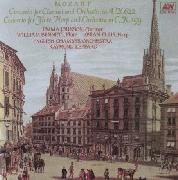 | Wolfgang Amadeus Mozart
Clarinet Concerto in A major, K. 622
October 1791
One of the classic clarinet works, written specifically for a basset clarinet (an instrument which was never popularized and thus has hecome associated with Mozart's pieces specifically). This was also Mozart's last formally completed piece before his death, making it a rather charming end to his career as a composer (the Requiem serving as his epitaph). |
| 26 |  | Wolfgang Amadeus Mozart
Requiem in D minor, K. 626
14 February 1792
Famously unfinished, with Mozart dictating pieces of it on his deathbed and his widow commissioning help to finish the skeletal framework her husband had left behind. Evaluating it as a Mozart composition is an act riddled with grey areas as a result of this, but there's no missing the fact that this is a stunning, haunting work, and if Mozart's collaborators composed parts of this as imitations of the late composer's darker style, they did a stellar job of it. |
| 27 | 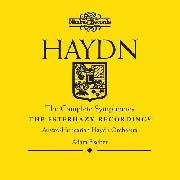 | Joseph Haydn
Symphony No. 93 in D Major
17 February 1792
A strong first entry in the list of Haydn's London symphonies, with a few winks and nudges such as a reference to Don Giovanni in the symphony's last movement. |
| 28 |  | Joseph Haydn
Symphony No. 98 in B♭ major
2 March 1792
In part a tribute to Mozart, who has multiple pieces quoted and referenced during this symphony. The finale is as sprawling a movement as Haydn gets. |
| 29 | 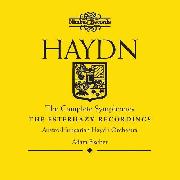 | Joseph Haydn
Symphony No.94 in G major,
23 March 1792
The "surprise" genuinely does catch you off guard, a fortissimo orchestral hit after however many measures of softness. The humor Haydn shows here is enough to make this feel Mozart-esque at times - a highlight of the London symphonies, for sure. |
| 30 | 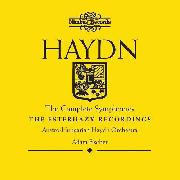 | Joseph Haydn
Symphony No. 97 in C major
3 May 1792
There is a real driving authority with this Haydn symphony, which makes it a highlight of his London works without any doubt. Somehow it manages to capture that intensity without being *on* all the time, though: even the faster movements give the listener time to breathe and recuperate. |
| 31 | 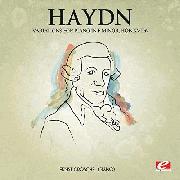 | Joseph Haydn
Variations in F minor, Hob.XVII:6
1793
Great theme and variations set from Haydn - his later career shows a proclivity for piano-writing that isn't present in his earlier music. A shame that it didn't emerge until the twilight of his career. |
| 32 | 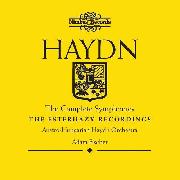 | Joseph Haydn
Symphony No. 99 in E♭ major
10 February 1794
Echoing another sound-off here...the final movement is excellent, although everything else drags somewhat and renders this one of the lesser London works. |
|
